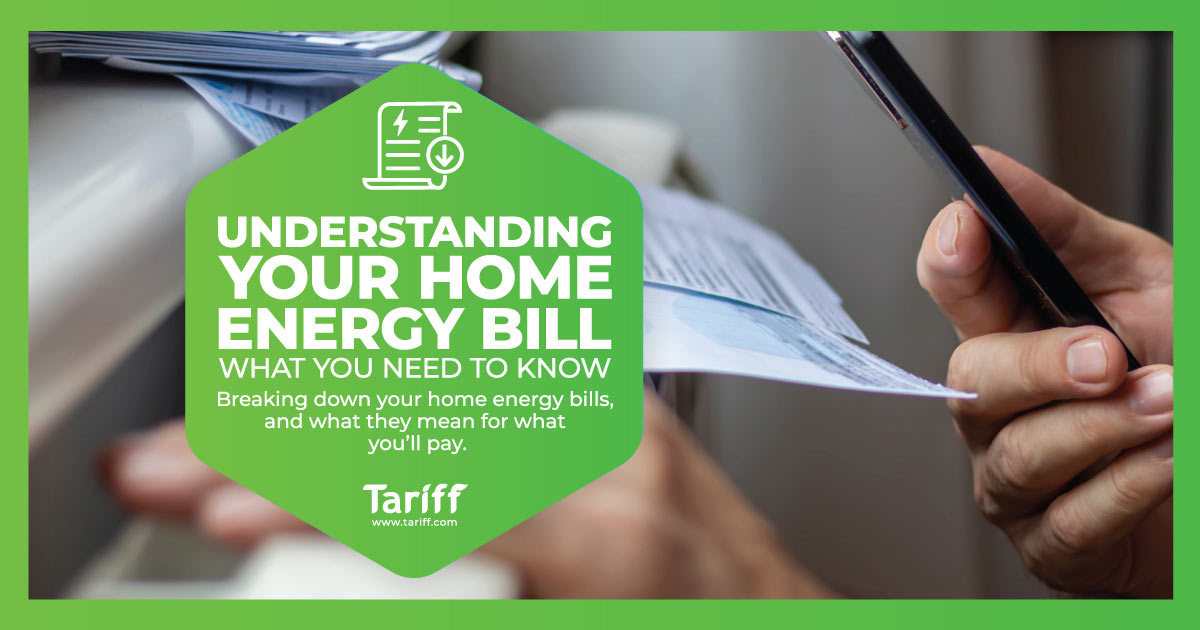What is the cheapest, most efficient way to heat?
As we approach the winter months, it’s natural that we’d be looking to find ways to warm our homes and businesses in a more cost-effective way. Plus, as we’ve seen in recent months, energy prices have continued their steady climb across a huge range of sectors, leading to businesses tightening the purse strings even further.
At Tariff, we’re at the forefront of the evolving energy market. It’s all part of our ongoing commitment to connecting businesses with an energy deal that’s not only right for the present, but right for the future, too.
We’ll be using our latest article to discuss the cheapest and most efficient ways to heat, and what that could mean for the future. We’ll also look at how you can most effectively make that switch to a more economical and eco-conscious method of heating, and why that’s set to be an essential going forward.
5 Of The Most Efficient Ways To Heat Your Business
Let’s count down a selection most affordable ways to heat your property, why they’re considered so cheap, and how that might not always be the case as move towards a more environmentally friendly future.
We’ll be using a basic formula to estimate the efficiency of each methods we’ll discuss below. If you’d like to learn more about these figures, and how you can adapt it for larger or smaller businesses, check out our complete beginner’s guide to business utilities.
This involves taking the average energy requirements of a medium-sized business (around 20,000 kWh per year), dividing it by the expected efficiency of that method (EE), before multiplying it by the cost per unit of electricity (30.1 pence per kWh for a medium-sized business). As a formula, this looks like:
(20,000 kWh ÷ EE) x 30.1 = Expected annual running costs
It’s also important to recognise that all of these figures are expectations or estimates, and the actual amount you pay may differ. If you want to discuss any of the energy sources we’ve discussed, contact our expert in-house team today who’d be happy to talk you through your options.
Air Source Heat Pump
Expected annual running cost of £2,006
An air source heat pump (often abbreviated to just ASHP) draws in air from outdoors, before converting this to heating energy for your business. This is most commonly done as an air-to-water system, which warms up heating implements like radiators, taps and hot water dispensers.
They’re a relatively new technology in the energy sphere, representing a great leap forward in both renewable options, and in safer and more energy-efficient methods of heating properties and premises.
They offer multiple benefits over more conventional forms of heating your business or home, with the chief among these being their relatively low running costs, and their position as one of the more prevalent emerging energy technologies.
However, one of the more overlooked advantages of an ASHP is that it produces no potentially harmful chemicals, as opposed to the possible issues that plague gas and fuel boilers. Their unique design means there’s limited scope for anything bad to happen, and that repairs are relatively affordable.
Plus, as the technology needed to build an ASHP becomes more widely available and, by extension, more affordable, installation costs will reduce and they’ll be available from more suppliers, and for more rural or remote businesses.
Electric Combi Boiler
Expected annual cost of £1,641
The natural progression as households and businesses transition away from gas boilers, an electric combi boiler is looking increasingly likely to become the “new norm” for larger-scale, traditional heating options.
You’ll notice as you read this list that we’ve opted to avoid including gas and oil boilers which, while still a feature across many older properties and offices, have a firm phase-out date set for 2025. That’s already begun to take shape, with conservative estimates placing the number of UK households with electric combi boilers at around 200,000 – a number that’s growing rapidly.
Electric combi boilers use electricity to provide both heat and hot water, and with renewable energy initiatives becoming prevalent ahead of the 2050 net-zero deadline, they’ve already established a niche in the market.
Infrared Heating Panels
Expected annual cost of £2,398
An innovative solution that opts to heat objects in the room as opposed to the air itself, we’re yet to see the real impacts of infrared heating on home and business energy solutions. However, as we’ve just touched on, there’s set to be a mass move away from gas and oil boilers, which opens the door for further investments in these pioneering panels.
It’s suggested that this has already started, with an estimated 35,000 homes across the UK already having taken the plunge with infrared heating panels. While business figures aren’t as readily available, there are already solutions that prioritise more commercial environments.
That includes customisable designs that can match with the aesthetic of a coffee shop or office, as well as more subtle panelling that can ensure larger facilities don’t lose any of the space they need for storage or essential work.
Solar & Gas Combination Heating Systems
Expected annual cost of £396
Comfortably the cheapest option on our list, the blend of gas boiler and solar panelling offers a significant reduction in the emissions produced by just a gas boiler, as well as a more sustainable option for the future.
While this does seem like the ideal solution, and it’s indeed one that’s become increasingly popular over the last few years, there is a clear and obvious downside to using the tried-and-tested combination.
Gas boilers are set to be banned by 2025, with no new installations allowed to go ahead after that date. While home and business owners won’t be expected to remove any heating equipment, there’s expected to be dwindling support and limited resources for any necessary repairs or maintenance.
It’s of course still an option, and something our exceptional operators here at Tariff can connect you with, but we’d advise considering other options before plumping for a more sustainable and future-focused solution for heating your premises.
Ground Source Heat Pump
Expected annual cost of £1,048
The counterpart to the aforementioned air source heat pumps, ground source heat pumps instead opt to take in heat through the Earth as opposed to the outdoor air. This is then distributed to the inside of the building through a similar mechanism, offering complete heating for your building.
However, this is where the similarities end with its air source cousin. The running costs are, as you’ll notice, significantly cheaper, with the Earth being able to provide a consistent, uninterrupted flow of heat.
That’s offset substantially by a currently astronomical installation price, which often makes ground source heat pumps still a pipedream for most businesses and homes. Of course, that’s set to change, but there’s still a fair way to go before they’re more of a mainstream option.
7 Steps For Maximising Your Business’ Heating Efficiency
While there’s limited options available for heating your business premises, you do have more freedom when it comes to maximising your chosen method of warming your business. Let’s explore a few key tips to follow if you’re looking to make the most of the heat you’re using.
1. Switch Your Heating Provider
Arguably the most effective step you can take when looking to maximise what you get from your heating bills is to look at switching providers. Not only does this save you a significant amount of money and hassle in the long-term, it’s also an ideal way to better outfit yourself for a more energy-efficient future.
With a firm deadline for net-zero set for 2050, the race for a supplier who can keep pace with those stringent deadlines is a difficult yet necessary one. That’s where a business energy switching service like Tariff can really excel.
We’ve got extensive expertise in connecting a huge range of businesses, from a comprehensive array of sectors and industries, to energy deals that not only match perfectly with their demands, but that prioritise a greener, cleaner future.
Switching your provider also ensures you can avoid the minefield of changing regulations, and ultimately put those stresses in the trained hands of a dedicated switching service like Tariff. We do all the legwork for you, taking you seamlessly from your current heating arrangements to a newer, more efficient business heating package.
2. Consider A Smart Thermostat
A relatively recent introduction to the world of commercial energy, smart thermostats are one of the energy sector’s more innovative ideas. While most smart thermostats have an easily adjustable dial, more advanced displays will show several key data points, including:
- The current room temperature
- Energy usage metrics
- Presets, such as cooling modes or winter weather adaptability
- Predicted usage for the coming weeks and months
A device of this nature ensures that you’re not only in control of what you use, but that you can make meaningful changes to ensure that your future usage either stays consistent, or that it reduces to a more affordable level.
This is often part and parcel of switching your business energy provider – some providers can offer deals to entice you to choose them, or add in a smart thermostat as part of your tariff as a cost-saving or eco-conscious measure.
3. Set Up Timing Windows For The Heating
While it can often be tempting to leave the heating on at a lower temperature to ensure a comfortable working environment for you and your colleagues, it can be hugely costly in both the short- and long-term.
That’s where timing comes in. Many modern thermostats will allow you to set specific windows wherein your heating is activated, and your office is actively being heated. This will then click off after a certain, predetermined length of time.
By running your heating on a more consistent schedule, you’re not only able to save money – you’re also able to better understand where your business can be further improved in terms of where you’re perhaps wasting energy or losing heat.
This is all part of a more eco-conscious that‘s set to become prevalent in the coming years, especially as we shift towards renewable energies. That’s something that’s already started to happen in earnest – read more in our piece on trailblazers in sustainability policies.
4. Turn Down The Temp By Just 1°C
While it might not seem like a huge difference (and truth be told it isn’t), turning down your temperature by just a single degree Celsius (or approximately 1.8° F) can actually have a huge impact when it comes to your bills.
Recent research found that, on average, you’ll save around £75 per year by simply opting for 20°C as opposed to 21°C. It may not seem like a massive saving, but the temperature change is unlikely to be something you notice, especially in winter months and with effective insulation.
5. Invest In Space Heaters
While it may seem counterintuitive to invest in additional heating equipment outside of your main heating option, space heaters or portable heating tools can offer the additional boost when you’re trying to resist switching on the thermostat during the colder months.
They’re especially handy for smaller offices, or more heavily trafficked workplaces (such as bars, restaurants or shops) where people are likely to come and go on a more regular basis. They’re much cheaper to run than a whole heating system, and while they’re not advisable as a more robust solution to your business’ heating conundrums, they’re ideal in a pinch.
6. Upgrade Your Windows
By far and away, our windows are the biggest cause of lost or dissipated heat from our homes and businesses. The latest estimates place this at around 10%, meaning that, without properly outfitted windows, a room that’s heated to 20°C is only kept at 18°C.
It’s practically impossible to prevent all heat loss through windows – this simply isn’t thought to be feasible in winter months – but there are measures you can take to minimise the heat we lose, and maximise what we get from our heating.
These vary in both cost and scope, but as a general rule we’d advise looking into:
- Double or Triple Glazing – While expensive, double/triple glazing is the most reliable and thorough way to ensure you minimise any heat loss through your windows. In simple terms, double glazing is two panes of glass in a window frame, with triple glazing being three panes.
- Temporary Glazing – This follows a similar concept to double glazing, but instead opts for a thinner sheet of acrylic plastic to better reinforce windows.
- Film Secondary Glazing – A thin film that can help to retain some of the heat in the room, this is the most cost-effective but least robust of the methods we’ve outlined here.
Each of these methods has its own advantages and disadvantages, but they all ultimately provide benefit when it comes to effectively heating your business.
7. Minimise Draughts Where You Can
A tip that may seem self-explanatory at first, effectively reducing the amount of air flow and draughts that can chip away at the warm atmosphere you’ve worked so hard to cultivate. There’s multiple different areas where this can, but the most common are windows (which we’ve just discussed), doors and loose flooring.
Simple methods to minimise the flow of cold air include:
- Draught Excluders – A long, thick cushion that can lie at the base of a door to ensure that no air seeps in across the threshold.
- Covering Your Letterbox – If you’ve got a letterbox that can let in air or breezes, a simple covering can help block out any cold air that gets in.
- Loose Or Draughty Flooring – Rugs, floor coverings or underlay can all offer protection against any cold air that rises from below.
Stay Warm This Winter With Tariff
Now that we understand the importance of finding a reliable and affordable heating source, all that remains is to discover what’s right for you. That’s where Tariff plays a pivotal role, taking businesses from their current heating options to a more sustainable and affordable solution that’s geared up for the future.
With our tailormade packages, we’ll get to know you and your business intimately, before scouring the market to discover a heating solution that’s built with you in mind. That’s often a time-consuming process, and we’re firm believers that you can better use that time while we do all the busy work for you.
Once we’ve sourced a few exceptional options, we’ll present you with our findings before giving you the final say. While we’ll have done everything we can to understand your unique circumstances, you know your business better than anyone.
That’ll be all you need to do after that – we’ll take control of everything else, and migrate you across to a heating solution that’s ideally suited to what you need. We encompass everything here at Tariff, all as part of our continued commitment to better energy for businesses.
Want to make that switch today? Get in touch with our in-house energy gurus today, and we’d be more than happy to discuss your options in greater detail.




